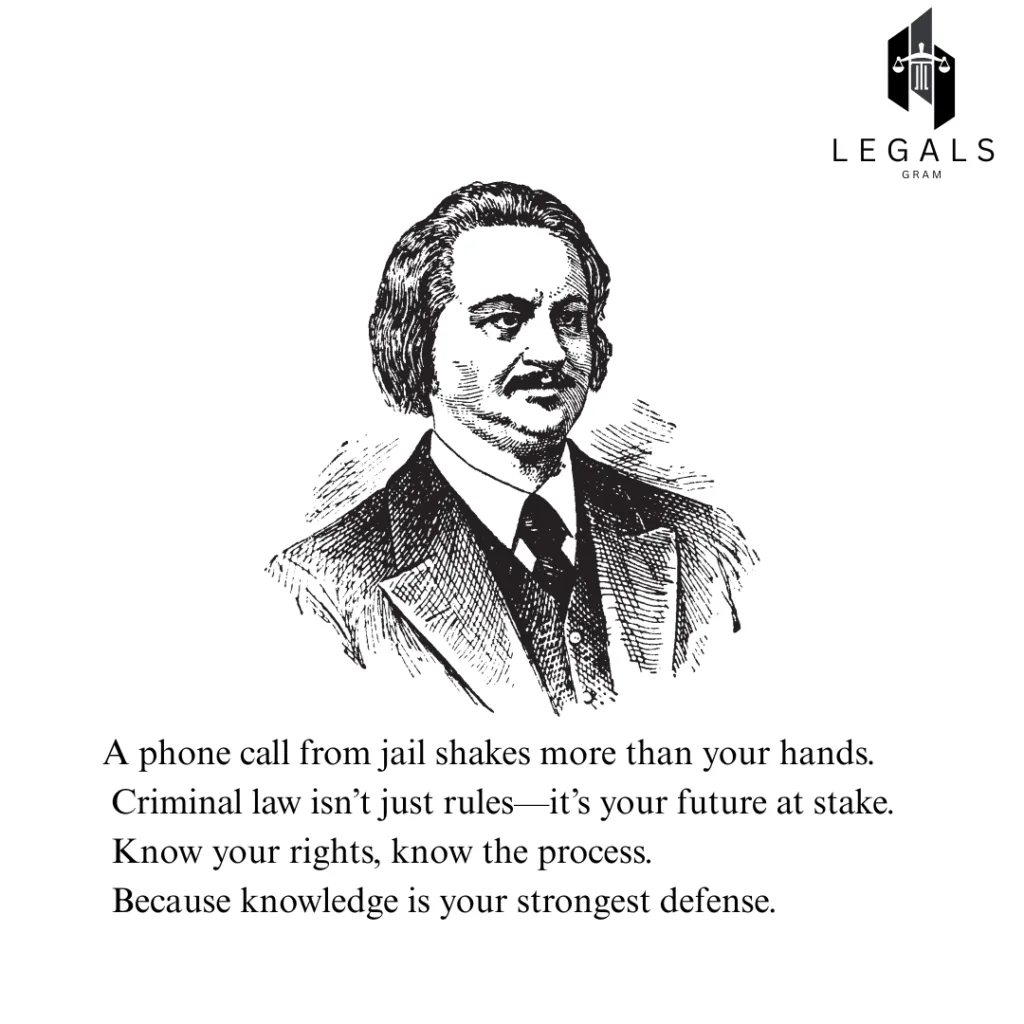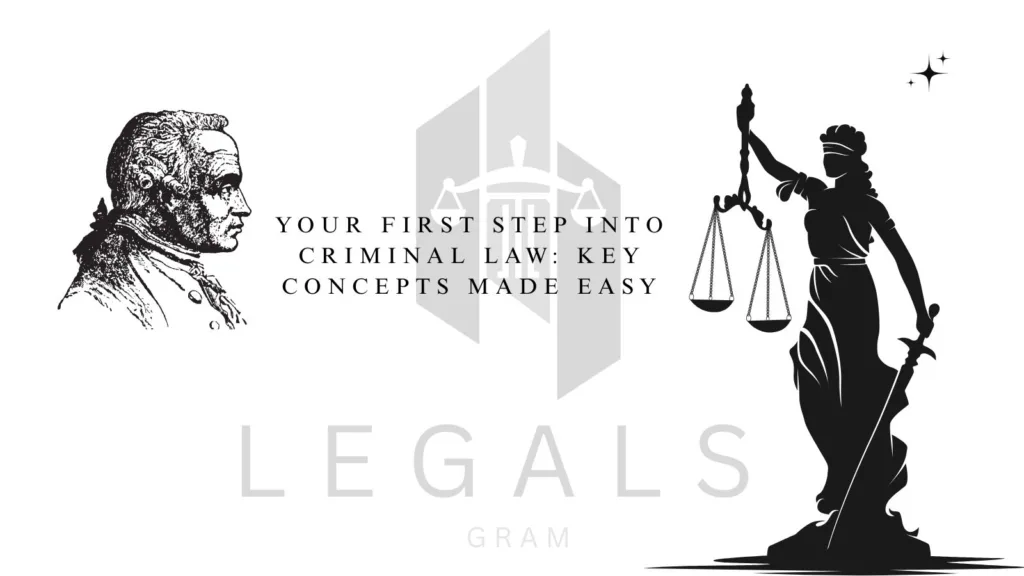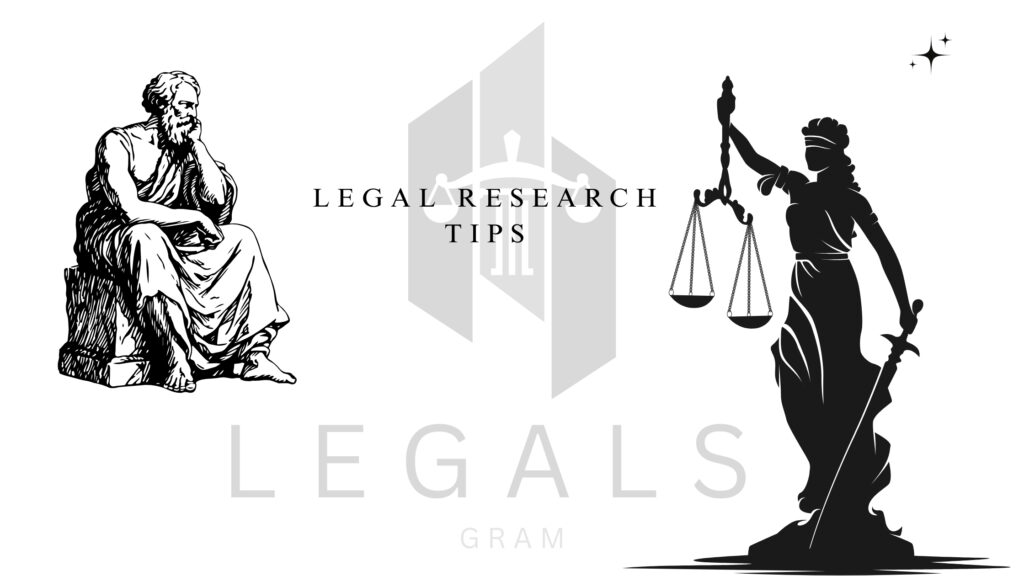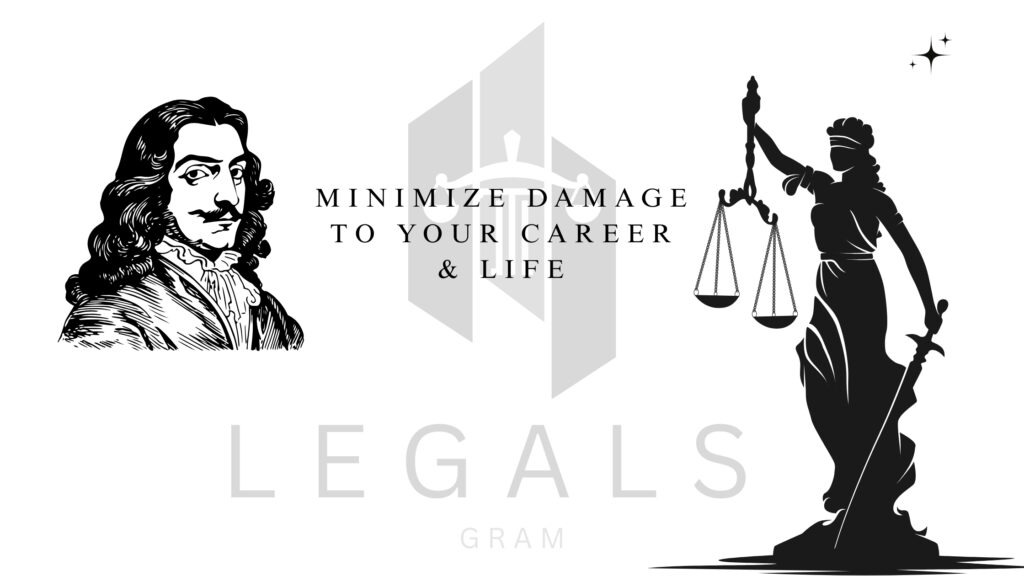When someone makes a phone call in jail, it hits different. Your heart drops. Your hands shake a little. You wonder: What happens next?
I’ve been there. Perhaps not myself, but I have seen families scramble when there are criminal charges that suddenly appear. The legal system feels like a foreign language. Everybody speaks languages you do not know. And the search engines of Google confuse even more.
I would like to simplify this in plain English.
What Makes Something a Crime?
The purpose of criminal law is to ensure the protection of society. If an individual violates these rules, the government intervenes. It is not a civil court where two individuals quarrel over money. In this case, it is the state and the accused.
Consider it in the following manner: when you back up and hit the car of someone that is normally a civil issue. But when you were drunk when it happened? Now it’s criminal.
The key difference? Criminals may be taken to jail on criminal cases. The civil cases normally imply payment of money.
Types of Criminal Charges
Misdemeanors: The “Lesser” Crimes
These are your fundamental breaches. Shoplifting a candy bar. Operating a vehicle under a suspended license. Public intoxication after your cousin’s wedding.
The majority of misdemeanors are punishable by less than a year of imprisonment. Instead, many individuals are given probation. The fine can hurt, but it will not ruin your life.
However, this is what surprised me here: even minor charges appear on background checks. That DUI from college? It may be noticed by your future employer.
Felonies: The Serious Stuff
Felonies are different. The penalties come with a jail term of more than one year. Armed robbery. Drug trafficking. Assault with a weapon.
The stakes are higher. Way higher. Conviction of a felony deprives essential rights. You can’t vote in many states. Possession of guns will be an offense. Licenses of professionals are eliminated.
I have observed a friend lose his license to practice nursing based on a felony charge for a drug. Twenty years of experience lost. All because he made such a dreadful choice in a bad moment.
How Criminal Cases Actually Work
The Arrest
When a person has probable cause, he/she is arrested by the police. This implies that there is evidence to the effect that a crime occurred, and this individual committed it.
In some cases, arrests occur on the spot. On other occasions, it takes months before the police act.
Pro tip: It is possible to be arrested even without being charged. The prosecutor determines whether to file actual charges or not.
Filing Charges
Prosecutors read police reports and determine the charges to be filed. They might add charges. Drop charges. Or change them completely.
This process takes time. Days or weeks usually. But in complicated cases, it can be made longer.
Court Appearances
First comes the arraignment. The judge reads the charges. The accused pleads guilty, not guilty, or no contest.
The majority of people get acquitted at the first instance. This gives time to consider and review evidence.
Then comes discovery. Both sides share evidence. Police reports. Witness statements. Video footage.
A lot of cases are resolved in the form of plea bargains. The defendant agrees to plead guilty to minor charges. In their turn, prosecutors reduce more serious charges or sentence to less severe ones.

Your Rights in Criminal Cases
The Right to Remain Silent
You’ve heard this on TV. It’s real. And it’s powerful.
You are not obliged to respond to police interrogatives. You need not talk about yourself. It is sometimes best to keep quiet.
The thing is, though, that the majority of people talk. They believe that explaining will aid. Sometimes it does. Often it doesn’t.
The Right to an Attorney
Can’t afford a lawyer? The court appoints one. These court-appointed defenders obtain a negative reputation, yet most of them are great lawyers.
Nevertheless, bringing your own attorney will generally involve greater time and care for your case. Raise the investment as far as you can afford it.
The Presumption of Innocence
In law, you are innocent till proven guilty. The prosecutor has to demonstrate it beyond a reasonable doubt.
This is a high bar. But that is not always true when you are in handcuffs.
Evidence and Proof
Criminal cases require concrete evidence. Witness testimony. Physical evidence. Video footage. Digital records.
Evidence is called into question. Was the search legal? Are witnesses reliable? Was there any proper procedure by the police?
Great defense counselors find loopholes in the prosecution. They generate reasonable doubt.
Potential Outcomes
Dismissal
Sometimes cases get dropped. Evidence disappears. Witnesses won’t cooperate. It becomes clear to prosecutors that they are unable to win.
This is the best outcome. No conviction. No penalties. But it’s not common.
Acquittal
This means “not guilty.” The jury or judge concludes that the evidence is not strong enough.
An acquittal cleanses the slate. On record, it is as though the charges did not occur.
Conviction
This is what everyone fears. The court finds you guilty. Now comes sentencing.
Sentences vary wildly. Probation. Community service. Fines. Jail time. Or combinations of all these.
What This Means for You
Criminal accusations alter all things. Jobs become harder to find. Housing applications are rejected. Admission to colleges becomes a trick.
Criminal charges are not the end of life. People rebuild. They move forward. They learn from mistakes.
Early good legal assistance is the trick. Understanding your options. Making a wise judgment in a stressful situation.
Moving Forward
Criminal law is overwhelming due to the fact that it is. The system is complex. The stakes are high. Errors have long-term effects.
But knowledge helps. It is important to know your rights. Fear is minimized by knowing what is expected.
In case you are under charges, breathe deeply. Get professional help. Focus on what you can control.
This is not the end of your story. It’s merely a hard chapter.



